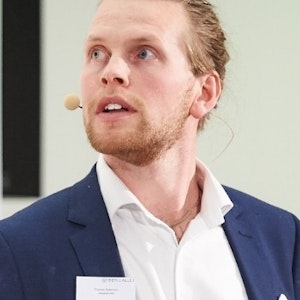Prior to studying at CAT, Tom spent a lot of his time travelling, climbing and surfing around the world. To finance such adventures he worked as a builder in the UK construction industry in between his trips, and eventually started his own business in the heritage building sector carrying out restoration work.
Throughout this time he encountered some recurring challenges:
- Traditional building materials are not breathable and are not appropriate for dealing with the moisture problems that heritage buildings face.
- One third of landfill is waste from the construction industry due to the lack of degradable products.
When Tom saw the MSc Sustainability and Adaptation course advertised, he saw this as the bridge between his practical experience and the opportunity to take on both these challenges. Using his practical experience and theory taught through the MSc programme, Tom focused his dissertation on developing a product that balances performance, workability, and sustainability.
In 2014, Tom and another CAT graduate launched Adaptavate, an award-winning company rethinking and redesigning the way building materials are produced, used and disposed of. Their flagship product ‘Breathaboard’ (the biocomposite alternative to plasterboard) was developed and originally tested directly through Tom’s MSc thesis. Since then the company has gone from strength to strength and they are currently working with potential production partners in Europe and N. America and some other exciting places, in the aim of seeing trial batches of the materials becoming available in the UK. Adaptavate was also a recently awarded Innovate UK grant.
When he is not experimenting with bio-composites, Tom can be found speaking about them and their benefits, or making the most of nature’s playground, surfing, climbing or walking.
Tom described his time at CAT and the course as “The perfect balance of theory and practice with really inspirational people.”

